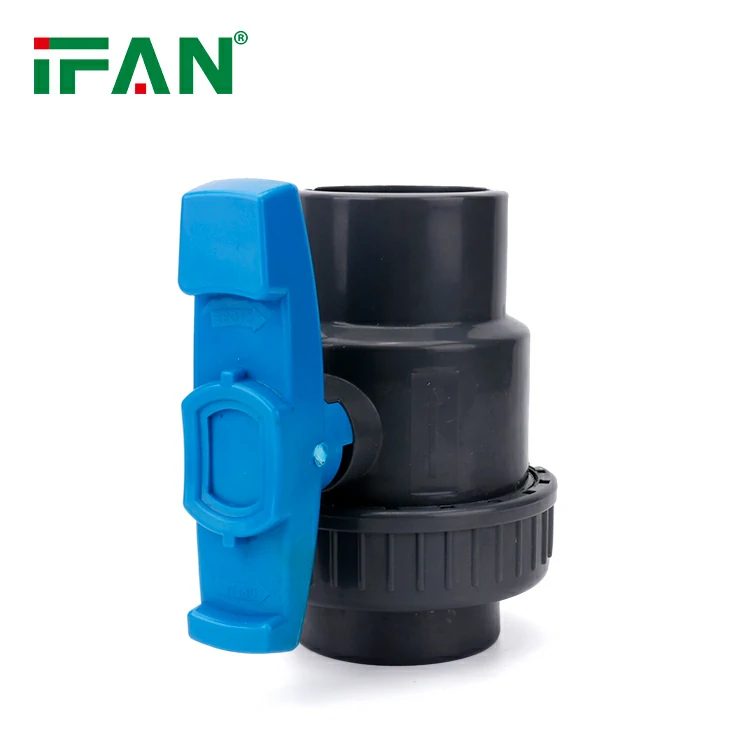PVC Single Union Ball Valve can be quite durable, but its longevity and performance will depend on several factors such as the material quality, the operating environment, and the application. Here’s a breakdown of its durability:
1. Material Durability
- PVC (Polyvinyl Chloride) is generally resistant to corrosion, rust, and chemical degradation, which makes it suitable for many plumbing, irrigation, and pool applications.
- However, PVC can become brittle under extreme temperature fluctuations or UV exposure. In outdoor environments or places with high heat, PVC can degrade faster unless it’s UV-resistant or shielded.
2. Pressure and Temperature Tolerance
- PVC ball valves are typically rated for low to medium pressure (usually up to 150 PSI) and temperatures between 32°F to 140°F (0°C to 60°C).
- Exposure to higher temperatures (above 140°F) or excessive pressure can reduce their lifespan and cause cracking or deformation.
3. UV Resistance
- PVC is not naturally UV-resistant, so if a PVC ball valve is exposed to sunlight for prolonged periods, it can become brittle and break more easily unless it is specially treated or shielded from direct sunlight.
4. Chemical Resistance
- PVC is known for being resistant to a wide range of chemicals, making it a good choice for many fluid handling systems.
- However, PVC can degrade with exposure to certain chemicals like ketones, chlorinated hydrocarbons, and some solvents, so it’s important to ensure compatibility with the fluids in your system.
5. Mechanical Stress
- A PVC valve can be somewhat fragile compared to metal alternatives (like brass or stainless steel). Excessive torque or physical stress (such as from over-tightening or impact) can damage the valve or cause cracking.
6. Maintenance and Longevity
- PVC valves generally require little maintenance if installed and used within their recommended pressure and temperature limits.
- Over time, the seals, O-rings, or the ball inside the valve might wear out and need to be replaced.
In Summary:
A PVC Single Union Ball Valve is a durable and reliable choice for many applications, especially in low to moderate pressure and temperature systems, as well as for non-abrasive or non-extreme chemical environments. For applications with higher temperatures, UV exposure, or aggressive chemicals, you may want to consider alternatives like CPVC, ABS, or metal valves for enhanced durability.
View more:https://www.ifanfittings.com/
BS 3505、BS 4346(801),ASTM D1785 SCH40(802)、ASTM D1785 SCH80(803)、DIN(804),GB(805),GB(806),
GB(901),DWV(902),ASTM D2665(903)


